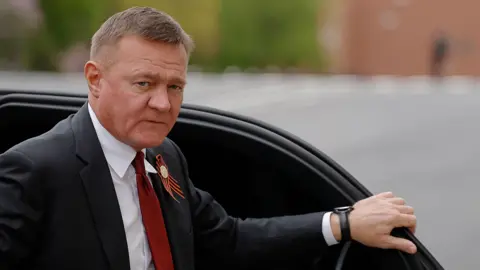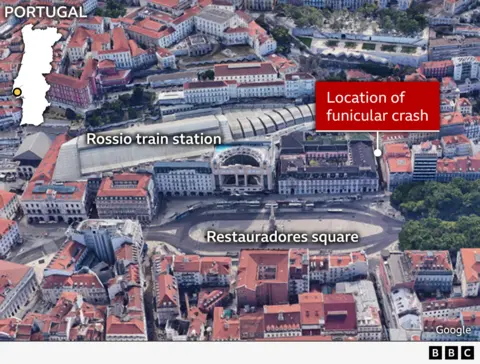Tragedy and Warning: Russian Minister’s Post-Sacking Death Sends Shockwaves Through Elite
Tragedy and Warning: Russian Minister’s Post-Sacking Death Sends Shockwaves Through Elite
In a stark and somber turn of events that has sent ripples of unease through Russia’s corridors of power, former Transport Minister Roman Starovoit was found dead on Monday, just hours after his dismissal by President Vladimir Putin. The dramatic sequence of events, culminating in Starovoit’s body being discovered in a park on the outskirts of Moscow with a gunshot wound to the head, has ignited widespread speculation and concern.

Investigators are reportedly treating the death as a suicide, with a pistol found near the body. This incident is exceptionally rare in modern Russian history, with the last comparable event involving a government minister’s suicide occurring over thirty years ago in the tumultuous aftermath of the August 1991 coup attempt, when Soviet Interior Minister Boris Pugo took his own life.
The Kremlin has maintained a measured public stance on the matter. Dmitry Peskov, President Putin’s spokesman, acknowledged the shockwaves emanating from the event, stating, “Normal people cannot but be shocked by this. Of course, this shocked us, too.” However, Peskov emphasized that the ongoing investigation would provide definitive answers, cautioning against premature speculation by the media and political commentators.
Despite the official reticence, the Russian press has been rife with theories, many attempting to connect Starovoit’s fate to events in the Kursk region, where he served as governor for over five years before his appointment as transport minister in May 2024. During his tenure, significant government funds were allocated to the construction of defensive fortifications along the border with Ukraine. However, these defenses proved insufficient to prevent Ukrainian forces from breaching and occupying territory within the Kursk region last year.
Adding another layer of intrigue, Starovoit’s successor as governor, Alexei Smirnov, and his former deputy, Alexei Dedov, have since been arrested and charged with large-scale fraud related to the construction of these very fortifications. This has led to speculation, notably from the business daily Kommersant, that Starovoit himself may have been a key figure under investigation in this fraud case, though authorities have not confirmed this.
“The most dramatic part of this, with all the re-Stalinisation that has been happening in Russia in recent years, is that a high-level government official [kills himself] because he has no other way of getting out of the system,” commented Nina Khrushcheva, a professor of International Affairs at The New School in New York. She drew a chilling parallel to the Stalin era, noting that such an act due to fear of imprisonment and harm to one’s family evokes memories of ministers like Sergo Ordzhonikidze, who died by suicide in 1937.
Interestingly, while newspapers have extensively covered Starovoit’s death, state television has offered minimal coverage. Monday evening’s main news bulletin on Russia-1, for instance, focused on the appointment of Andrei Nikitin as the new acting transport minister, with only a brief, 18-second mention of Starovoit’s death towards the end. This selective reporting suggests a Kremlin strategy to control the narrative and potentially downplay the significance of the event for the general populace, given television’s greater influence in shaping public opinion in Russia.
For Russia’s political elite—ministers, governors, and officials—the tragic end of Roman Starovoit serves as a potent and chilling warning. As Khrushcheva puts it, “Unlike before, when you could get these jobs, get rich, get promoted from regional level to federal level, today, that is clearly not a career path if you want to stay alive.” The message appears clear: the system, increasingly characterized by pressure and potential severe repercussions, leaves little room for error, and falling foul of it can have the direst consequences, serving as a stark reminder of the perilous nature of power in contemporary Russia.



Post Comment